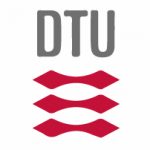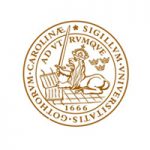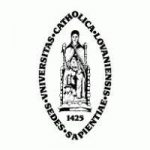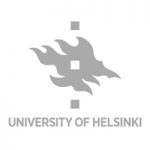项目介绍
Are you interested in ecosystem services of marine habitats, such as stone and biogenic reefs and contributing to the fields of marine ecosystem restoration and conservation? Would you like to collaborate in research and restoration projects with stakeholders and university research groups? If so, we are looking for a dedicated PhD candidate to join us in a unique research opportunity aiming to understand the evolution and durability of restored marine habitats and characterizing their ecosystem services.
At DTU Aqua, we offer a 3-year PhD student position as part of a newly funded Aage V. Jensen project: Quantification of marine Ecosystem Services in connection with Marine nature Restoration (QESMAR). The overall aim of the QESMAR project is to test, develop and standardize assessment methods (performance criteria) to enable quantification of ecosystem services (ES’s) for habitats, species, stocks of blue carbon and nutrients, and water quality in existing restoration projects. This will make it possible to assess restoration progress against goals, determine comparability across different restored habitats and conditions, and support better evidence-based guidelines for future marine restoration. To support this, two PhD projects and one post doc project will be initiated that in a collaboration framework to develop means to efficiently monitor and quantify a range of ES’s associated with the marine restoration project on restored habitats of eelgrass meadows, stone reefs, and bivalve beds/reefs in Danish coastal waters like Løgstør Bredning, Vejle Fjord and Roskilde Fjord. The three projects are expected to be coordinated with joint efforts in field campaigns and data analysis.
Over recent decades, some efforts have been made to recover and improve coastal marine areas, e.g. in response to European legislation, while restoring marine life is considered achievable if major human pressures are mitigated or reduced. There is however limited documentation and interpretation on the effects of restoration efforts, as long-term monitoring is rarely undertaken, and ecosystem response is complex. Important ES’s include storage, immobilization and transformation of carbon and nutrients, stabilizing sediment, improving water quality, coastal geomorphic protection, and biodiversity. It is essential to apply coherent monitoring and reporting of restoration outcomes to enable reliable assessments of restoration progress, ecological processes, and adaptation of future restoration strategies.
This PhD project based at DTU Aqua will focus on developing appropriate spatiotemporal monitoring and reporting metrics to investigate the evolution and stability of restored marine habitats and their ESs with focus on water quality and sediment processes. Both objectives will be based in bivalve beds but expand the studies to include other habitat types, such as seagrass meadows. The main focus will depend on the PhD candidate’s background and expertise, and interests. Data will be collected as part of ongoing restoration projects on restored habitats of eelgrass meadows, stone reefs, and bivalve beds/reefs. In your project you will build on existing knowledge developed at DTU Aqua, Aarhus University and University of Southern Denmark regarding marine restoration and ecosystem services. You will join a supportive and engaging work environment at DTU Aqua and can help shape our marine nature restoration research program.
At DTU Aqua, main supervisors will be Pedro Freitas, Daniel Taylor and Jens Kjerulf Petersen. The project will offer additional supervision from researchers from the participating institutions DTU Aqua, Aarhus University and University of Southern Denmark.
Responsibilities and qualifications
You will be responsible for planning and conducting field work and laboratory analysis, designing, and developing monitoring and reporting protocols, and metrics for the long-term monitoring of the restored habitats and associated ES’s according to the chosen PhD objective.
Your responsibility and tasks will be to:
- Plan and conduct fieldwork and laboratory analysis.
- Develop monitoring and reporting protocols metrics.
- Analyse data.
- Contribute to the daily routine and work tasks of the section.
- Complete PhD school courses and external stays to develop and expand your expertise.
- Disseminate scientific results in peer-reviewed articles.
- Attend conferences to present your research and expand your academic network.
Your desired traits and skills:
- Curiosity and high motivation for marine research and nature restoration.
- Professionalism in laboratory and field work.
- Strong foundation of basic marine biology and ecology theory and practice.
- Experience in laboratory work and field work.
- Analytical skills and experience in statistical analysis.
- Strong written and oral communication skills in English.
- Ability to work independently and be flexible.
- Ability to independently manage priorities without supervision.
- Capacity to travel between your main working place in Nykøbing Mors and the DTU Aqua facility in Lyngby, Aarhus University in Roskilde and University of Southern Denmark in Odense for short stays.
You must have a two-year master’s degree (120 ECTS points) or a similar degree with an academic level equivalent to a two-year master’s degree.
Approval and Enrolment
The scholarship for the PhD degree is subject to academic approval, and the candidate will be enrolled in one of the general degree programmes at DTU. For information about our enrolment requirements and the general planning of the PhD study programme, please see DTU’s rules for the PhD education.
Assessment
An assessment of the applicants will be made by Researcher Daniel P. Taylor, Senior Researcher Pedro S. Freitas, and by Head of Section Professor Jens K. Petersen based on your academic and practical merits and the mandatory project to be submitted with the application.
We offer
DTU is a leading technical university globally recognized for the excellence of its research, education, innovation and scientific advice. We offer a rewarding and challenging job in an international environment. We strive for academic excellence in an environment characterized by collegial respect and academic freedom tempered by responsibility.
Salary and appointment terms
The appointment will be based on the collective agreement with the Danish Confederation of Professional Associations. The allowance will be agreed upon with the relevant union. The period of employment is 3 years.
You can read more about career paths at DTU here.
Further information
Further information may be obtained from Senior Researcher Pedro Freitas at DTU Aqua, ph. +45 93510773; email: psfr@aqua.dtu.dk or Professor Jens Kjerulf Petersen, ph. +45 61222429; email jekjp@aqua.dtu.dk
You can read more about DTU Aqua at https://www.aqua.dtu.dk/; Section for Coastal Ecology at https://coast.dtu.dk/english.
If you are applying from abroad, you may find useful information on working in Denmark and at DTU at DTU – Moving to Denmark.
Application procedure
Your complete online application must be submitted no later than 28June 2024 (23:59 Danish time).
Interviews are expected to be carried out in week 27.
Applications must be submitted as one PDF file containing all materials to be given consideration. To apply, please open the link “Apply online”, fill out the online application form, and attach all your materials in English in one PDF file. The file must include:
- A letter motivating the application (cover letter)
- Curriculum vitae
- Grade transcripts and BSc/MSc diploma including official description of grading scale
- Brief research proposal (1-2 pages) outlining ideas in terms of addressing the research topics provided in the short description of the PhD project above. Candidates are encouraged to include relevant references to support their research proposal.
You may apply prior to obtaining your master’s degree but cannot begin before having received it.
Applications received after the deadline will not be considered.
All interested candidates irrespective of age, gender, race, disability, religion or ethnic background are encouraged to apply.
DTU Aqua, Technical University of Denmark
DTU Aqua – National Institute of Aquatic Resources – works for well-functioning oceans, rivers, and lakes where biodiversity can thrive. Our research, advisory service, and education contribute to the development of a sustainable blue bioeconomy, robust aquatic ecosystems, and reduced effects of climate change. We have a large national and international network and cooperate with research partners, public authorities, industry, and NGOs. We have state-of-the-art research facilities and Denmark’s only ocean- and arctic-going research vessel. The Institute has 360 employees, one-half being scientific staff, including 50 PhD students. More than 35 nationalities are represented at the Institute, and we support an equal gender distribution. We are located in Lyngby, Hirtshals, Nykøbing Mors, and Silkeborg and have regular activities in Greenland. Learn more on aqua.dtu.dk
Section for Coastal Ecology conducts research within the ecology of the coastal zone from nutrient dynamics to fish as well as the coastal zone as a fishing ground and production area for low-trophic aquaculture. Our core research areas are aquaculture of low-trophic species i.e. bivalves and seaweed, fisheries and effects of fishery and seaweed collection in the coastal zone, marine habitats, and their importance in the coastal zone for biodiversity and fish. The results of the research are largely translated into practice through advice to public management and the industry. We have a strong national and international collaboration network of universities, research institutions, and industry.
Technology for people
DTU develops technology for people. With our international elite research and study programmes, we are helping to create a better world and to solve the global challenges formulated in the UN’s 17 Sustainable Development Goals. Hans Christian Ørsted founded DTU in 1829 with a clear mission to develop and create value using science and engineering to benefit society. That mission lives on today. DTU has 13,500 students and 6,000 employees. We work in an international atmosphere and have an inclusive, evolving, and informal working environment. DTU has campuses in all parts of Denmark and in Greenland, and we collaborate with the best universities around the world.
联系方式
电话: (+45) 45 25 25 25相关项目推荐
KD博士实时收录全球顶尖院校的博士项目,总有一个项目等着你!






